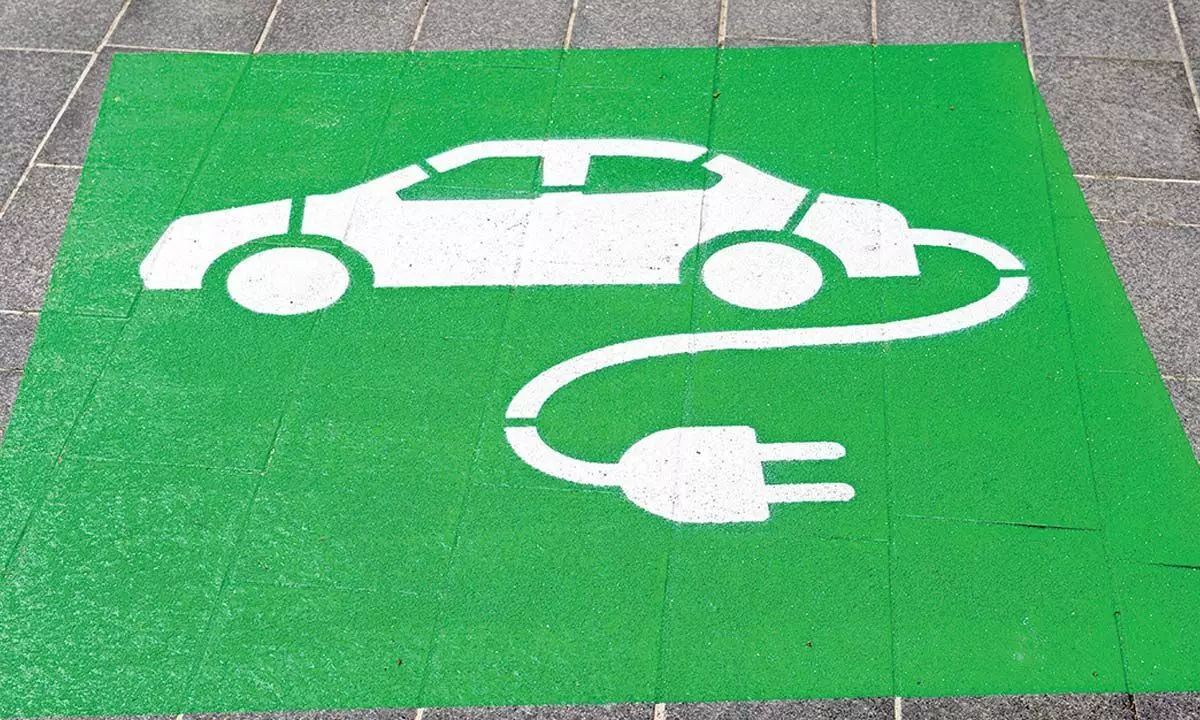Not many takers for EVs, yet the sector sees massive employment growth

Not many takers for EVs, yet the sector sees massive employment growth
A substantial employment growth in the EV (Electric Vehicle) sector has been observed with the help of a recent survey by CIEL Human Resources, which shows a 108 percent increase in employee numbers during the last two years.
Bengaluru: A substantial employment growth in the EV (Electric Vehicle) sector has been observed with the help of a recent survey by CIEL Human Resources, which shows a 108 percent increase in employee numbers during the last two years. Although there was a spike in the sale of EVs during March, the companies also witnessed a drop during April and May, this seems to have recovered as June has seen a decent growth curve with a 9.8 % increase in sales. However, individuals are still hesitant to invest in EVs.
As there has been a slight improvement of sales in June, people will switch to electric vehicles as the market matures, says Samarth Kholkar – CEO and Cofounder of BLive. There are several reasons for why the public is uncertain about EVs. "EV market is relatively new and it will take some time for the market to stabilize. Hence there is this instability when it comes EV sales. Also, the fact that there are many myths around the industry might also be affecting the sales. The recent incidents of EV battery catching fires has also created a negative impact on the minds of people, which would also be a possible reason for drop," he adds.
Poor infrastructure is another reason for why people are hesitant to purchase EVs. "Lack of charging stations could be one of the reasons for why people are hesitant to purchase EVs. However, I don't believe that's the only reason. Poor infrastructure is one of the pressing issues among people thinking of shifting to EV's. Poor infrastructure does not mean just the lack of charging stations but also the lack of proper charging set up in their home. This leads to problems of range anxiety. The government has already begun taking efforts to improve the adoption of EVs. Cities such as Pune have developed EV readiness plans that drive the adoption of EVs," he explains.
The increase in cost of electric vehicles had dampened buying to an extent. Lately, Karnataka Chief Minister Basavaraj Bommai inaugurated 152 charging stations in Bengaluru and added that the cost of the electric vehicles must be affordable for commoners. "Only then will the usage of EVs increase and the manufacturers should focus more on this aspect," he suggested.
One major reason for why people still avoid buying EVs is the quality of the battery. "Although the battery has to be designed in such a way that short-circuits are avoided, some companies fail to do so. Individuals do not trust EVs as they believe that it is too soon to trust them. Even if someone would consider buying it, it would be as a secondary vehicle. Everybody would've faced a vehicle breakdown at some point where both skilled and unskilled technicians would be able to take care of the problem. This is not so in the case of an electric vehicle, their service network is yet to reach a substantial level. The initial cost of an EV also seems pretty high," says Nithin P.V.
Since the government policies and many companies are seen joining the EV wave, the cost of EVs will go down, says Kholkar. "Even though the initial cost of owning an EV might be expensive than a traditional vehicle. But running and maintenance cost of EV is much cheaper compared to a traditional vehicle in a long run. Especially if you compare the cost spent on fuel every week vs. the monthly rental charge of electricity. On an average a two-wheeler owner would need a weekly refill of at least 300rs. Whereas an EV owner would need Rs. 2000-3000 per month," he continues.
Nevertheless, the good news is that the electric mobility alone can give rise to more than five crore jobs in this abbreviated period.
"According to the Ministry of Skill Development and Entrepreneurship estimation, the EV market can change the requirement of more than one crore jobs by the year 2030. Furthermore, every direct job associated with the EV sector can create additional 4-5 indirect jobs. However, to ride the EV revolution there needs to be platforms to help the future workforce get the correct skillset required to work on next-generation, disruptive automotive technologies. Additionally, there is a need to combine comprehensive coursework with real world, practical and hands-on learning," he concludes.











